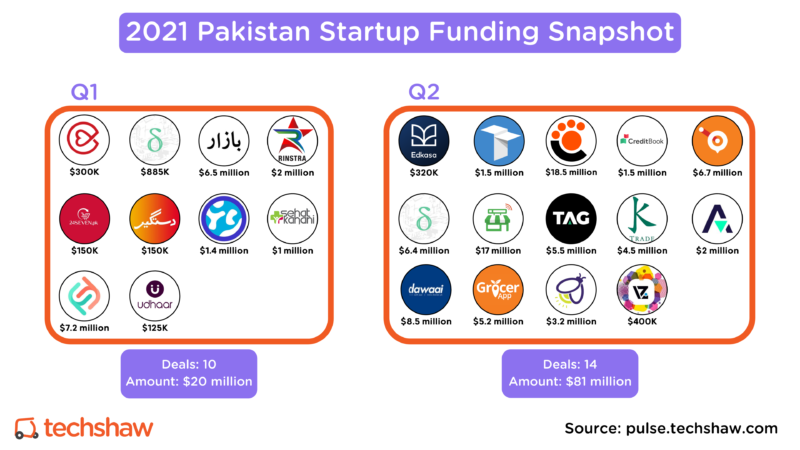Today’s turbocharged economy relies heavily on entrepreneurs to drive innovation and job creation. They’re the ones with the audacity to think differently, to challenge the norm, and to turn the wheels of change.
On the flip side, venture capitalists are the catalysts with the financial horsepower to take these dreams from zero to sixty.
But what’s the secret sauce that makes a VC open their checkbook? Is it a revolutionary concept, the potential to disrupt the market or the unique credentials of the founder that seal the deal?
If you ask any VC, they will tell you that startup investing is less about the idea and more about the execution. It’s a bet on the jockey, not the horse.
So, how does this play out in Pakistan?
To answer this question, I dug into the startup funding data. I looked at 76 active startups started by 142 founders* who have received $617 million in combined venture capital funding as of August 2023.
Here’s what I found:
- Local Education: Most founders got their education in Pakistan.
- Top-Tier Schools: Most founders attended Pakistan’s most prestigious institutions.
- Field of Study: Most founders studied Economics and Computer Science.
- Local Experience: Most founders had experience working in Pakistan.
- Corporate Stepping Stones: Companies like Swvl and Careem appear to be common launching pads for these founders.
Local Education
Contrary to popular belief, most venture-backed founders in Pakistan attend local universities and do not have foreign degrees.
59% of founders—83 out of 142—earned bachelor’s degrees in Pakistan, followed by the U.S. (21%) and the UK (12%).

Top-Tier Schools
No surprise with this next one. One-third of all venture-backed founders attend the most prestigious universities in the country.

The top three—LUMS, IBA, and NUST—are all based in Pakistan. This aligns with global trends where founders often come from prestigious universities in their countries.
Field of Study
In terms of what these founders studied, the data points to a few specific fields of study or majors:

Economics leads the pack, followed by Computer Science and Business. You can say that there’s a little diversion here from other startup ecosystems.
In the U.S., the leading major is Computer Science, whereas in India, it’s Engineering.
In Pakistan, the prominence of Economics could reflect a focus on market-driven solutions and financial viability, which is a crucial aspect for startups anywhere but may be especially valued in emerging markets.
Computer Science, being a close second, is consistent with global trends, emphasizing the tech-driven nature of many startups.
Local Experience
Another prevailing belief in the ecosystem is that most founders don’t have local market experience. Based on the data, that’s not true.

A staggering 72% of founders had work experience in Pakistan.
The U.S., UK, and U.A.E follow, but their combined total doesn’t even come close to the number of founders with local experience. This could indicate that understanding the local market is a significant factor in attracting venture capital in Pakistan.
Corporate Stepping Stones
Little to no surprise with this one. Many founders worked at high-growth companies before venturing on their own.

Careem and Swvl lead the pack, serving as major launchpads for founders in Pakistan.
Interestingly, being self-employed is also a common precursor to founding a startup, indicating that some founders prefer to test the waters before seeking venture capital.
Endnote
While there’s no secret sauce that instantly turns a solo founder into a venture-backed startup, a pattern does emerge from the data.
A strong education from a top-tier Pakistani university, coupled with hands-on experience in the local market, particularly at high-growth companies like Careem and Swvl, can significantly tip the scales in the founder’s favor.
But this is just the baseline.
These factors may improve founder odds but are not the be-all and end-all. The startup landscape is filled with outliers and trailblazers who defy the norms.
*Founder education and work experience were extracted from the LinkedIn profiles of founders. Funding data, along with founder information, is available for purchase.
Visualizations by Brand Nib.







